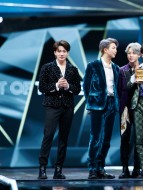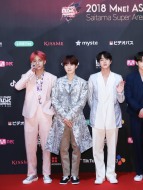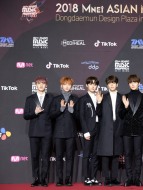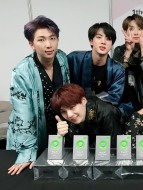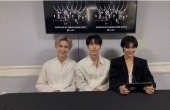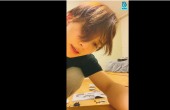[Herald Interview] ‘Korean agencies need to adopt US business style’
When in the United States, do as the Americans do: James Minor, a music manager of the South by Southwest festival, believes that Korean agencies should adjust to how locals do business in order to succeed on US terrain.
Having served as a general manager of the Austin, Texas-based international music festival for six years, Minor said there are major differences between the business styles prevalent in Korea and the US, with the key for Korean agencies’ success in the US being to overcome the gap.
“Unlike what many think, K-pop is not crossing (into) the mainstream. While there are major K-pop fan bases spread across the country, the music is not played on commercial radio,” said Minor during an interview with The Korea Herald in Seoul on Tuesday ahead of the annual three-day MU:CON global music conference and showcase from Tuesday to Thursday.
Minor pinpointed that the biggest barrier for K-pop agencies entering the US is that they pursue a different business style that doesn’t fit in the US system.
“Compared to the US management agencies, Asian agencies, including Korea, create something like a 360 (degree) deal, where they sign with an artist and make money by engaging in every area, including marketing, promotion and touring,” Minor said.
“But generally in the US, when you sign to a record label, that artist will sign to a separate booking agent and management agency. All these entities are separate, making sure that booking agent and record label are doing their jobs, what they’re supposed to do.”
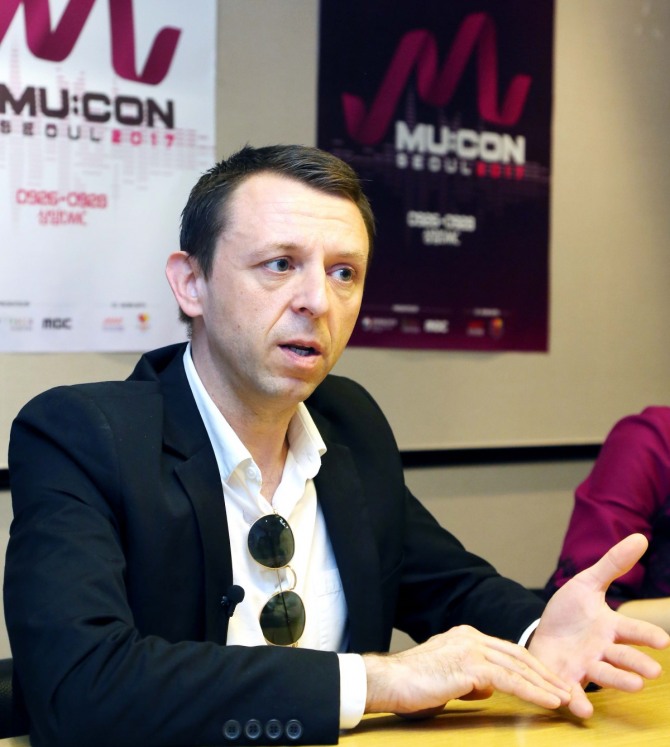 |
| James Minor, a music director of South by Southwest festival, speaks during an interview with The Korea Herald in Seoul on Tuesday at MU:CON, an annual international music fair being held in Seoul from Tuesday to Thursday. (The Korea Creative Content Agency) |
Minor went on to cite financial difficulties as among the Korean agencies’ biggest barriers. In order to be successful in the US, he said, artists have to hit the road and tour every state. But the problem has been that when K-pop groups come to the US, they typically visit only big cities with large Asian communities, like Los Angeles, New York, Dallas, Atlanta and Chicago.
“I honestly think that they don’t really have to come to the US, as those acts are already really large in Korea or Asia. The amount of effort and money they have to put in the US -- it’s huge.”
Although K-pop isn’t yet part of the mainstream in the US music industry, Minor expressed his belief in the power of K-pop breaking into the US music scene fueled by a growing number of fans in the country.
“There’s still room for more growth, of course. ... Jay Park has signed with a big-name US hip-hop label recently. But maybe they have to kind of strip things back, like, do you really need five makeup people on tour? I don’t think any K-pop agency has done a good job at that yet,” he laughingly added.
Hosted by the Korea Creative Content Agency, the sixth annual MU:CON kicked off Tuesday in Sangam-dong, western Seoul with the aim to expand the reach of Korean music abroad and bring together industry professionals.
Held under the slogan “Seoul, Asia Music City,” the three-day event consists of a showcase of musicians, a conference and business-matching sessions for music industry professionals, inviting 64 musical acts around the world to perform at the festival. Among Korean musicians to be showcased are YB, Kiha & the Faces, Monni, MC Sniper, Yi Sung-yol, Junggigo, Kong Minzy and N.Flying.
By Hong Dam-young (lotus@heraldcorp.com)









